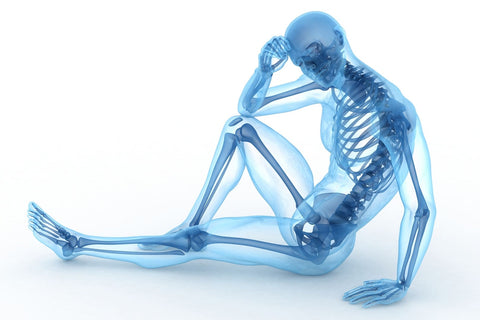Calcium is an alkaline mineral which serves a number of physiological functions. Its ions within the body are necessary to send signals to-and-from the brain. One of its most apparent functions is that of maintaining firm structure of bones and teeth. More than 90% of body calcium is stored in these two structures.
Calcium prevents muscles from being overactive and going into spasms. It is also one of the main components of hair and nails. Calcium is needed to control levels of magnesium, potassium, and phosphorus in the blood, and all these Minerals work together to balance one another.
Most common calcium deficiency symptoms may include the following: brittle and weak bones, muscle spasms and cramps, problems with blood clotting, tiredness, weakness, feeling pins or needles, irritability, delayed growth and development in children, irregular heartbeat, and blood pressure problems.

